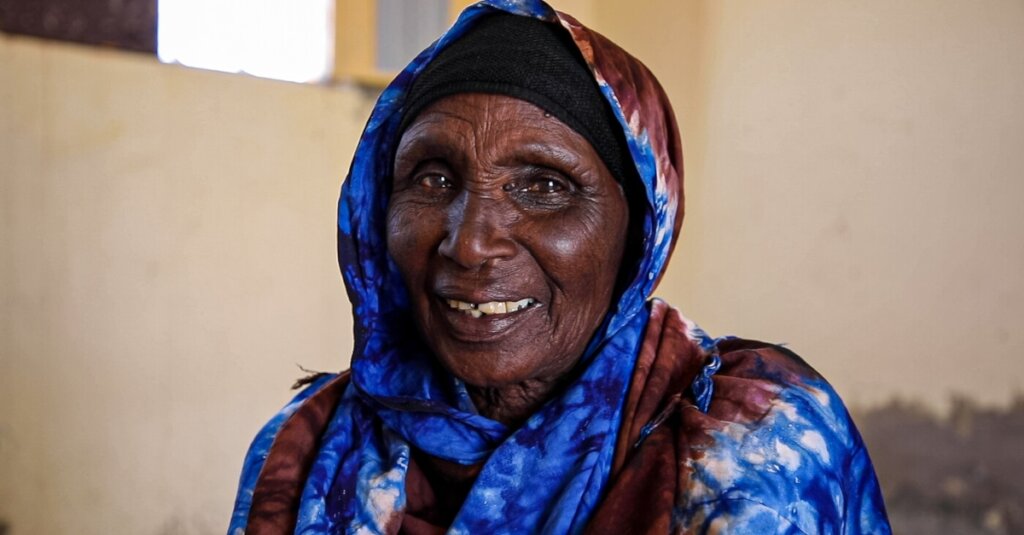By Sandrina da Cruz | Director of Disaster Response
Read a personal essay about how donations to the Flex Fund are powering our new urgent crisis initiative.
Ten years ago, I met a doctor I will never forget. He managed a small, cluttered medical clinic on a dirt road in the eastern Democratic Republic of the Congo. I worked with communities there as part of a United Nations Peacekeeping mission. When a rebel group called M23 took over the Congolese city of Goma, they terrorized, killed, and raped innocent civilians. The doctor provided medical care to communities caught in the fighting between M23 and government forces. He did his work with a mix of sadness and determination.
Since I met the doctor, Congolese communities have continued to live through eruptions of violent attacks and human rights violations by various armed groups and by government forces. Recently, the M23 has resurfaced, bringing more fear and terror.
People in Congo are also facing one of the largest food crises in the world. The dire situation is considered Africa’s longest-running humanitarian conflict. But reliable and human-centered news about Congo doesn’t come easily. It never seems to make the nightly newscast—I have to search for it.
Media spotlight
Charts tracking global media coverage show where our attention goes in times of crisis and conflict. Not accounting for natural disasters, if you look back at the past five years, you’ll see a steady line of news coverage. Through the flare-ups of the war in Yemen and the protests that became violent clashes in Ethiopia, there was minimal change. There was a temporary uptick during the Taliban’s attacks on security forces in Afghanistan. And then—a spike—Feb. 24, 2022.
Over the past five months, Russia’s war on Ukraine has been the subject of consistent coverage from every major news outlet. With critical implications for communities worldwide, people are watching and worrying.
For many in the Western world, the invasion shattered a sense of security. It’s leading to comparisons with World War II when the Soviet Union bombed cities and targeted civilians. In Europe, WWII took millions of lives, leveled towns, and destroyed the economy. The Cold War that followed added a threat of nuclear conflict by the Soviet Union—and current Russian leadership has renewed that threat.
Outraged and heartbroken, people are stepping up to help.
Unmatched response
Just days after Russia’s war began, donations to GlobalGiving’s Ukraine Crisis Relief Fund dramatically outpaced those to any disaster response fund we’d launched in our 20-year history. More than for Hurricane Maria, the Syria refugee crisis, or the 2015 Nepal earthquake. More than our response to the COVID-19 pandemic, even.
The global response has been the greatest I’ve seen in 15 years of serving people caught in wars and humanitarian crises.
My team at GlobalGiving was on the phone with our partners in Ukraine while the invasion was imminent and the fear palpable. And we’ve been making emergency grants to power their incredible response in Ukraine and neighboring countries since the war started.
We are also supporting these community leaders in the long term by awarding early recovery and reconstruction grants. One example is the Zagoriy Foundation. Their team is working to ensure that nonprofits in Ukraine can sustain their operations and continue delivering important social services.
I am overwhelmed by the reaction of everyday people and companies around the world to fuel this response. Their care and generosity fill me up.
And I hope to see it again.
[Continue reading my essay on why every crisis deserves our attention and support here.]
Even before the current crisis in Ukraine, an estimated 274 million people around the world needed humanitarian assistance.
Twenty-seven million of them are in the Democratic Republic of the Congo.
Twenty-five million of them are in Ethiopia.
Twenty-four million of them are in Afghanistan.
We should also be telling their stories and mobilizing resources to help meet their needs.
Your donation to the GlobalGiving Flex Fund is helping us respond to crises around the world that may be long-lasting but overlooked. We support the community leaders who are already providing critical assistance to people in their corner of the world. And thanks to your generosity, we can offer our support equitably and unconditionally.
Like the doctor I met so long ago, these local leaders are a symbol of hope amid hardship that is difficult for most to imagine. And you are giving them the fuel to continue their work—wherever they are. Thank you.
With gratitude,
Sandrina + the GlobalGiving Team
Project reports on GlobalGiving are posted directly to globalgiving.org by Project Leaders as they are completed, generally every 3-4 months. To protect the integrity of these documents, GlobalGiving does not alter them; therefore you may find some language or formatting issues.
If you donate to this project or have donated to this project, you can receive an email when this project posts a report. You can also subscribe for reports without donating.
Support this important cause by creating a personalized fundraising page.
Start a Fundraiser